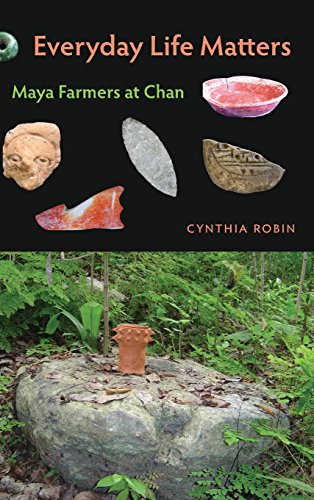

Most ebook files are in PDF format, so you can easily read them using various software such as Foxit Reader or directly on the Google Chrome browser.
Some ebook files are released by publishers in other formats such as .awz, .mobi, .epub, .fb2, etc. You may need to install specific software to read these formats on mobile/PC, such as Calibre.
Please read the tutorial at this link: https://ebookbell.com/faq
We offer FREE conversion to the popular formats you request; however, this may take some time. Therefore, right after payment, please email us, and we will try to provide the service as quickly as possible.
For some exceptional file formats or broken links (if any), please refrain from opening any disputes. Instead, email us first, and we will try to assist within a maximum of 6 hours.
EbookBell Team

4.1
50 reviews“Interesting, strong, and timely. Everyday Life Matters is clearly and sharply written, and by targeting the archaeology of everyday life as an emerging field explicitly, it identifies and fills a real void in the field.”—John Robb, author of The Early Mediterranean Village
“An absolute must-read. Robin’s thorough understanding of commoners and how they occasionally interacted with elites provides a solid foundation for social reconstruction.”—Payson Sheets, coeditor of Surviving Sudden Environmental Change
While the study of ancient civilizations most often focuses on temples and royal tombs, a substantial part of the archaeological record remains hidden in the understudied day-to-day lives of artisans, farmers, hunters, and other ordinary people of the ancient world. Various chores completed during the course of a person’s daily life, though at first glance trivial, have a powerful impact on society as a whole. Everyday Life Matters develops general methods and theories for studying the applications of everyday life in archaeology, anthropology, and a wide range of related disciplines.
Examining the two-thousand-year history (800 B.C.–A.D. 1200) of the ancient farming community of Chan in Belize, Cynthia Robin’s ground-breaking work explains why the average person should matter to archaeologists studying larger societal patterns. Robin argues that the impact of the mundane can be substantial, so much so that the study of a polity without regard to its citizenry is incomplete. Refocusing attention away from the Maya elite and offering critical analysis of daily life elucidated by anthropological theory, Robin engages us to consider the larger implications of the commonplace and to rethink the constitution of human societies by ordinary people living routine lives.